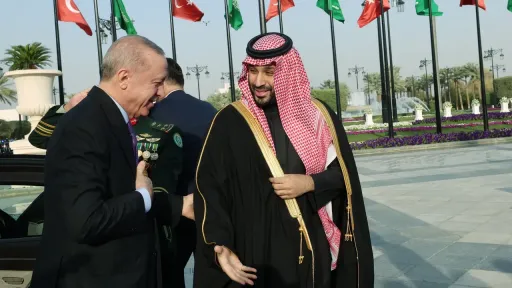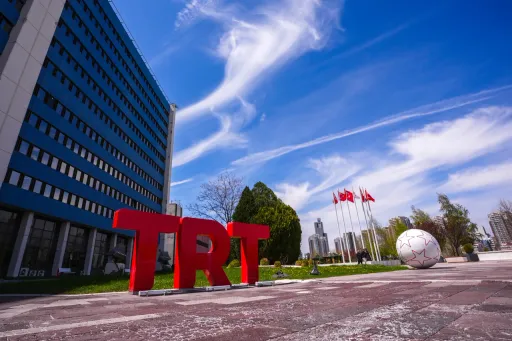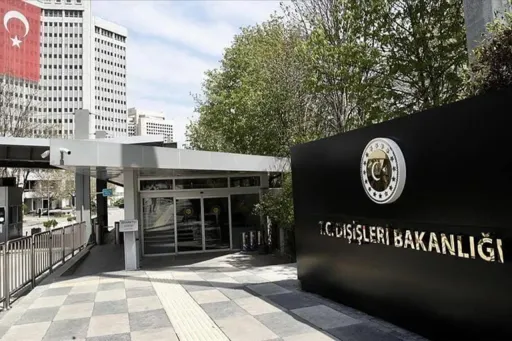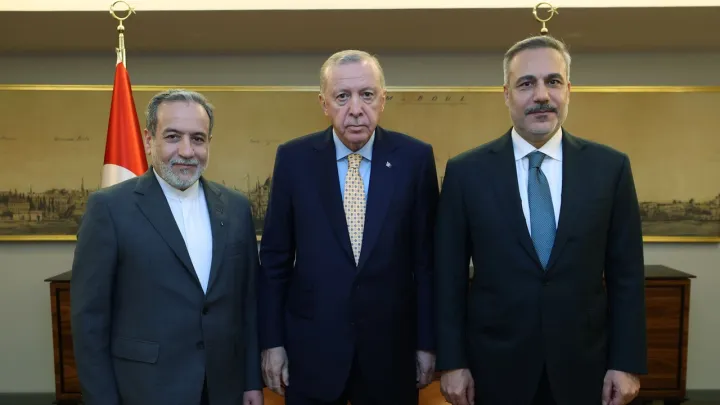Sport
Dollar
0,0000
%Euro
0,0000
%Gram Gold
0,0000
%Quarter Gold
0,0000
%Silver
0,0000
%Following a meeting in Ankara, Türkiye's National Security Council issued a strong condemnation of Israel’s ongoing military actions in Gaza, Lebanon, Syria, and Yemen.
Türkiye’s National Security Council was convened under the leadership of President Recep Tayyip Erdogan - its first meeting since the announcement of the dissolution of the PKK terrorist organisation earlier this month.
Assessing the recent developments in the goal of a "terror-free Türkiye," the council underlined its determination to closely monitor every stage of the dissolution process, said the council in a statement on Thursday.
From renewed focus on domestic security to growing ambitions as a peace broker across continents, the session marked a critical juncture in Ankara’s evolving role on the world stage.
Fight against terror
At the heart of Thursday’s session were updates on Türkiye’s long-running fight against what it calls existential threats to its national unity: the PKK terrorist organisation, its Syrian affiliates PYD/YPG, the Fetullah Terrorist Organisation (FETO) network behind the 2016 coup attempt, and Daesh.
Turkish forces, the council was told, have continued to strike deep into northern Syria and Iraq, targeting PYD/YPG positions in Afrin and Kobani, while tightening intelligence coordination with Baghdad.
Meanwhile, prosecutions against suspected FETO members remain active in Turkish courts.
The council members praised the “determination, perseverance, and success” of the country’s security forces and pledged close oversight of ongoing operations.
The message was clear: while major offensives may have subsided, vigilance remains non-negotiable.
A war-torn neighbour, a fragile opportunity
The meeting also discussed the developments in Syria.
The council reiterated Ankara’s support for the Syrian government’s efforts to restore national control, expressing cautious optimism about international calls to lift economic sanctions.
Ankara emphasised its commitment to Syria’s sovereignty, unity, and territorial integrity, while warning against any efforts to fracture the country.
The council called for a principled international stance and stressed that purging the region of terrorist groups would not only benefit Türkiye but also open the door to a new era of peace in Iraq, Syria, and Iran.
Gaza, mediation, and a role beyond borders
The council also issued a strong condemnation of Israel’s ongoing military actions in Gaza, Lebanon, Syria, and Yemen.
It accused the Israeli government of pursuing expansionist goals that derail regional peace, and urged the global community to take responsibility in curbing such threats.
Türkiye, the council said, intends to expand its presence as a stabilising force in conflict zones far beyond its borders. In Africa, Ankara is deepening its support for security efforts in unstable regions such as Sudan, Libya, and the Horn of Africa.
More broadly, the council pointed to Türkiye’s growing reputation as a diplomatic hub.
From facilitating the latest Russia-Ukraine ceasefire talks in Istanbul, to hosting quiet backchannel discussions between NATO and non-aligned states in Antalya, Türkiye is carving out a space as both mediator and power broker, it added.
Ankara even played a behind-the-scenes role in easing recent tensions between India and Pakistan.
One of the few regions showing concrete progress is the South Caucasus.
The council welcomed the recent breakthrough between Azerbaijan and Armenia, who reached an agreement on a draft peace deal.
Türkiye, a longtime ally of Baku, reaffirmed its hope that a lasting peace—one that benefits the wider region—can soon be realised.
Comments
No comments Yet




















Comment